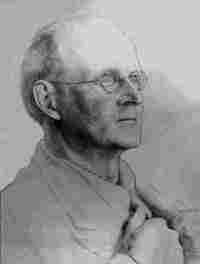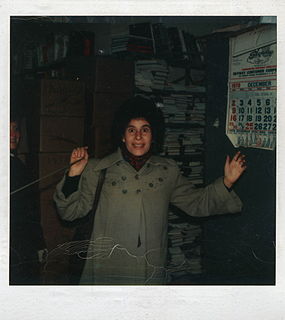A Quote by Charles Kay Ogden
The belief that words have a meaning of their own account is a relic of primitive word magic, and it is still a part of the air we breathe in nearly every discussion.
Related Quotes
A definition is nothing else but an explication of the meaning of a word, by words whose meaning is already known. Hence it is evident that every word cannot be defined; for the definition must consist of words; and there could be no definition, if there were not words previously understood without definition.
For me words still possess their primitive, mystical, incantatory powers. I am inclined to use them as part of an attempt to make my own reality more real for others, as part of an effort to transcend emotional danger. For me, words are a form of action, capable of influencing change. Their articulation represents a complete, lived experience.
Sound words can't be understood through formal study of the language alone. They're felt when you immerse yourself in the culture or lifestyle that becomes a part of you. The Japanese language is abundant with onomatopoeia. Even though I've lived in Japan a long time, sound words are still an uncertain territory. And I think new words are being created every day. Even when I don't know a word I can sometimes connect it to a meaning using the sensations produced by the sounds, which feels like I'm playing with words.
We are in love with the word. We are proud of it. The word precedes the formation of the state. The word comes to us from every avatar of early human existence. As writers, we are obliged more than others to keep our lives attached to the primitive power of the word. From India, out of the Vedas, we still hear: On the spoken word, all the gods depend, all beasts and men; in the world live all creatures...The word is the name of the divine world.
When we can't hold back, or set boundaries, on what comes from our lips, our words are in charge-not us. But we are still responsible for those words. Our words do not come from somewhere outside of us, as if we were a ventriloquist's dummy. They are the product of our hearts. Our saying, "I didn't mean that," is probably better translated, "I didn't want you to know I thought that about you." We need to take responsibility for our words. "But I tell you that men will have to give account on the day of judgment for every careless word they have spoken" (Matt. 12:36).
Not only the grounds of the opinion are forgotten in the absence of discussion, but too often the meaning of the opinion itself... Instead of a vivid conception and a living belief, there remain only a few phrases retained by rote; or, if any part, the shell and husk only of the meaning is retained, the finer essence being lost.
That air. The air afterwards. I wanted to breathe it in. It felt right to breathe it in. Because we were breathing them in, weren't we? And the building. We were breathing it all in. And I thought, there's a part of this that's actually a part of me now. I now have that responsibility. I am alive, and I am breathing, and I can do the things this dust can't do.
Every one has experienced how learning an appropriate name for what was dim and vague cleared up and crystallized the whole matter. Some meaning seems distinct almost within reach, but is elusive; it refuses to condense into definite form; the attaching of a word somehow (just how, it is almost impossible to say) puts limits around the meaning, draws it out from the void, makes it stand out as an entity on its own account.









































